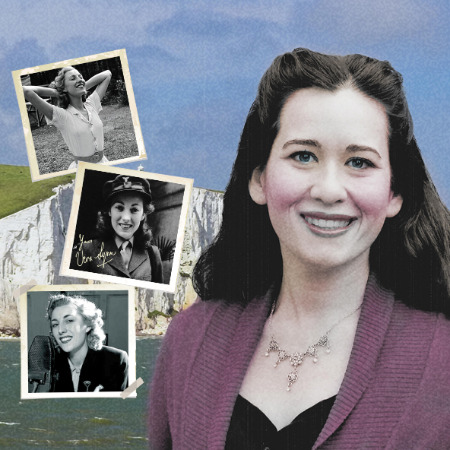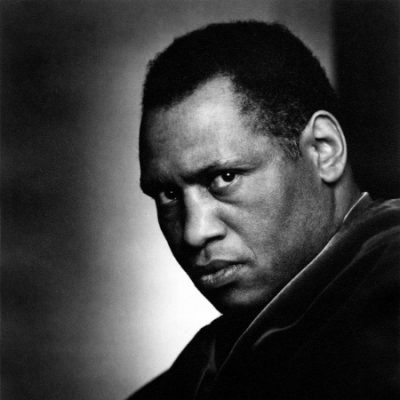FRINGE: 2 marvelous MUSICALS
Posted on August 23, 2018 By Colin MacLean Entertainment, Front Slider, Music
 Last year, a 100-year-old songstress was the best-selling recording artist of the year in Britain – beating Adele, among others.
Last year, a 100-year-old songstress was the best-selling recording artist of the year in Britain – beating Adele, among others.
With her clear pop soprano voice, Dame Vera Lynn became inextricably woven into the matrix of defiance that sustained Britain in the gloomiest days of World War 2 – as the beleaguered country stood (mostly alone) against the might of the German war machine.
Her songs, We’ll Meet Again, A Nightingale Sang in Berkeley Square and There’ll Be Bluebirds Over the White Cliffs of Dover, became anthems that helped unite a country – and for that matter much of the world. She tirelessly toured the war zones – Egypt, India, – giving outdoor concerts for the troops. Some of her best known records feature large numbers of “Her Majesty’s Armed Forces” singing along with her in aerodromes and mess halls.
The era is not new to St. Albert’s Melanie Gall (now residing in New York). A few years back she appeared at the Fringe in a pleasant, music-filled show with the songs that women of the “home front” sang while knitting socks for the boys at the front.
Her new show We’ll Meet Again: Vera Lynn, The Forces’ Sweetheart (Stage 7) has a single woman singing to a pre-recorded soundtrack on a black box stage with only an old-fashioned microphone. Gall is obviously a well trained singer – it shows in her classic precision, control and projection. But she leaves anything operatic behind and becomes resolutely a pop singer delivering pop songs with verve and passion. Her research was deep and filled with fascinating detail. She reads letters and anecdotes. Lynn herself shows up as well – on tape. Yes, she’s still alive, now 101.
Over the years, Gall has experienced some difficulty with her interstitial narration – sometimes she’s been uncomfortable on stage, and her words needed a professional polish. Not so here. She is perfectly at home and with her cheery, upbeat approach, she spins the tale of the child singer who grew up to be (sometimes) derisively labelled “maudlin,” but went on to be known as the “Sweetheart of the Forces.” Gall is heartfelt and genuine.
I was not prepared for the impact of the show. As Gall sings, the indelible memories associated with the songs come flooding back. The show will transport anyone of a certain age back to those dark days of World War 2. Lynn would sing in the middle of a Bernese jungle on packing boxes – sing to wounded soldiers in hospital tents or to thousands gathered in jungle clearings. And to us at home, gathered as a family around the Victrola in the living room, she was the voice of the Empire. There’ll Always Be An England, she sang and, despite the existential carnage of the blitz going on at the time, we believed it.
Gall even passes out song sheets for those who want to join in.
A superb hour of great singing and pervasive nostalgia.
5 out of 5
***
 I must admit to a life-long obsession with Paul Robeson. The American actor-singer was the great black hope of the 1930s. He was the only African American at Rutgers University and became an All-American football player – “240 pounds of dark destruction” they called him. Robeson became a consummate actor playing the lead in Eugene O’Neill’s The Emperor Jones (1920), the role of Joe in Show Boat (Jerome Kern wrote the immortal Ol’ Man River specifically for him) and Othello. He learned to speak 25 languages, including Russian and Mandarin. He was a scholar in many fields.
I must admit to a life-long obsession with Paul Robeson. The American actor-singer was the great black hope of the 1930s. He was the only African American at Rutgers University and became an All-American football player – “240 pounds of dark destruction” they called him. Robeson became a consummate actor playing the lead in Eugene O’Neill’s The Emperor Jones (1920), the role of Joe in Show Boat (Jerome Kern wrote the immortal Ol’ Man River specifically for him) and Othello. He learned to speak 25 languages, including Russian and Mandarin. He was a scholar in many fields.
Actor and playwright Tayo Aluko has celebrated Robeson’s life in his one-man show Call Mr. Robeson (Stage 15) all over the world. He’s a solid actor, a master storyteller and the production is more biography than concert. Aluko’s pleasant baritone doesn’t equal Robeson’s resonant church-organ bass – but then, there has never been a voice like Robeson’s. Many of the star’s long list of songs – Goin’ Home, Swing Low Sweet Chariot, Joe Hill, Git On Board Little Children and Nobody Knows the Trouble I’ve Seen – are performed.
For Robeson, his art and his politics were one, and he gave everything to both. His songs can be viewed as an act of defiance toward oppression. As a pastor’s son, he grew up with strong sense of justice and his years of embracing unpopular causes (civil rights, unions) brought on fierce persecution. When he was brutally beaten by both teams when he first took to the field to play for Rutgers, his father told him, “You gotta show them that we are as good as any of them,” and sent him back to play (when he got out of the hospital). He bonded with the working man and was loved by them – especially by the miners in Wales who worked for starvation wages and still joined him in song.
Robeson went to England and Russia where he found that being black made no difference. He was accepted in Europe while his people were still being lynched in America. He filled houses and arenas all over the world, but at home he refused to sing to segregated audiences. He spoke out about the treatment of his people – and America turned on him.
Dissent has seldom been popular in the “Land of the Free.” Robeson spent nine years in house arrest and had his passport revoked, so he could not sing to his adoring world-wide audience. He was blacklisted by Sen. Joseph McCarthy. Radio stations refused to play his records – although I might note that CBC radio continued to play his music, as well as that other blacklisted folk singer, Pete Seeger.
Robeson’s health finally broke and his career ended. He died in 1976.
If you are not familiar with Robeson, this is a thrilling introduction to a pioneering titan who became a true American tragic hero whose shining brilliance led the way for all the black performers who followed him.
At the end of the production we saw, the audience stood to acknowledge both the show and the man who inspired it.
5 out of 5













